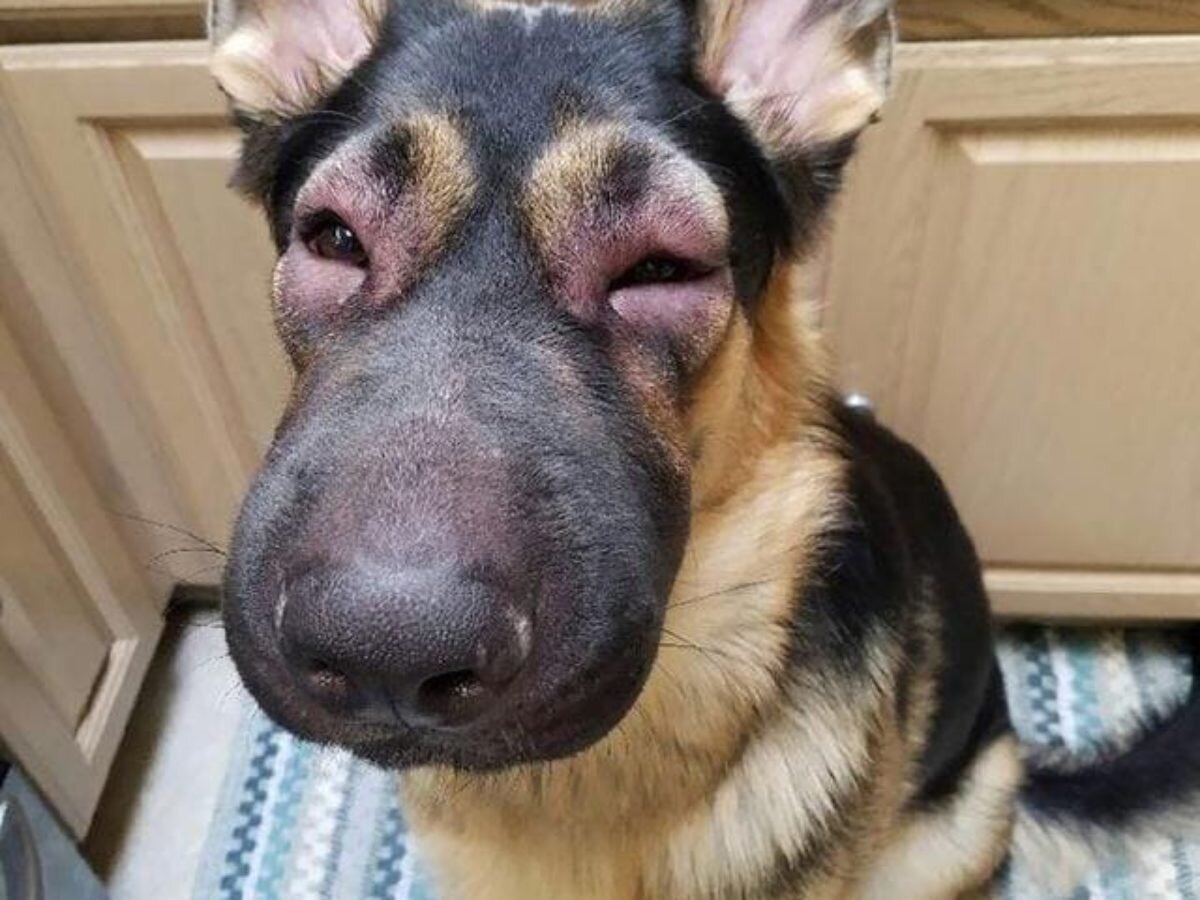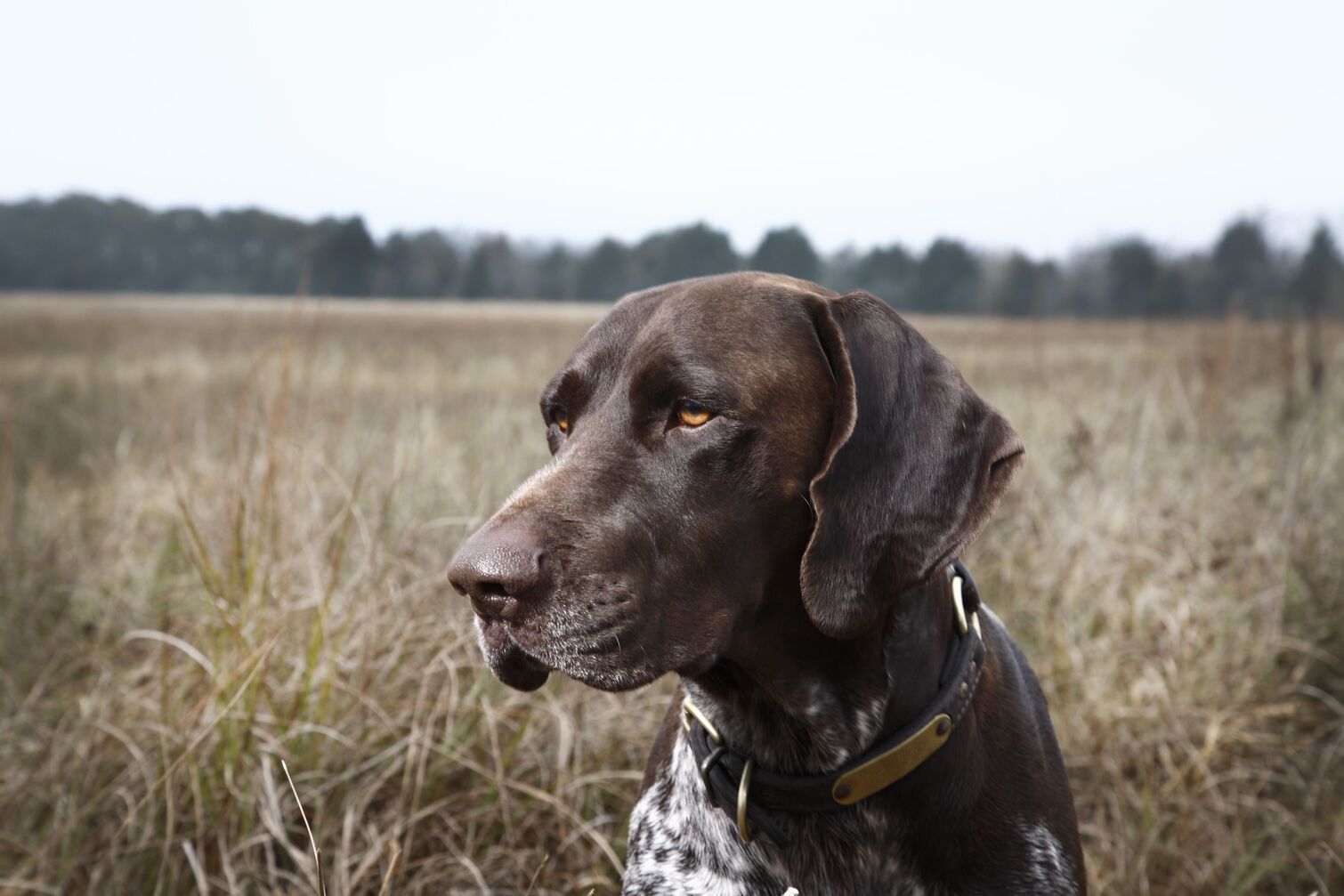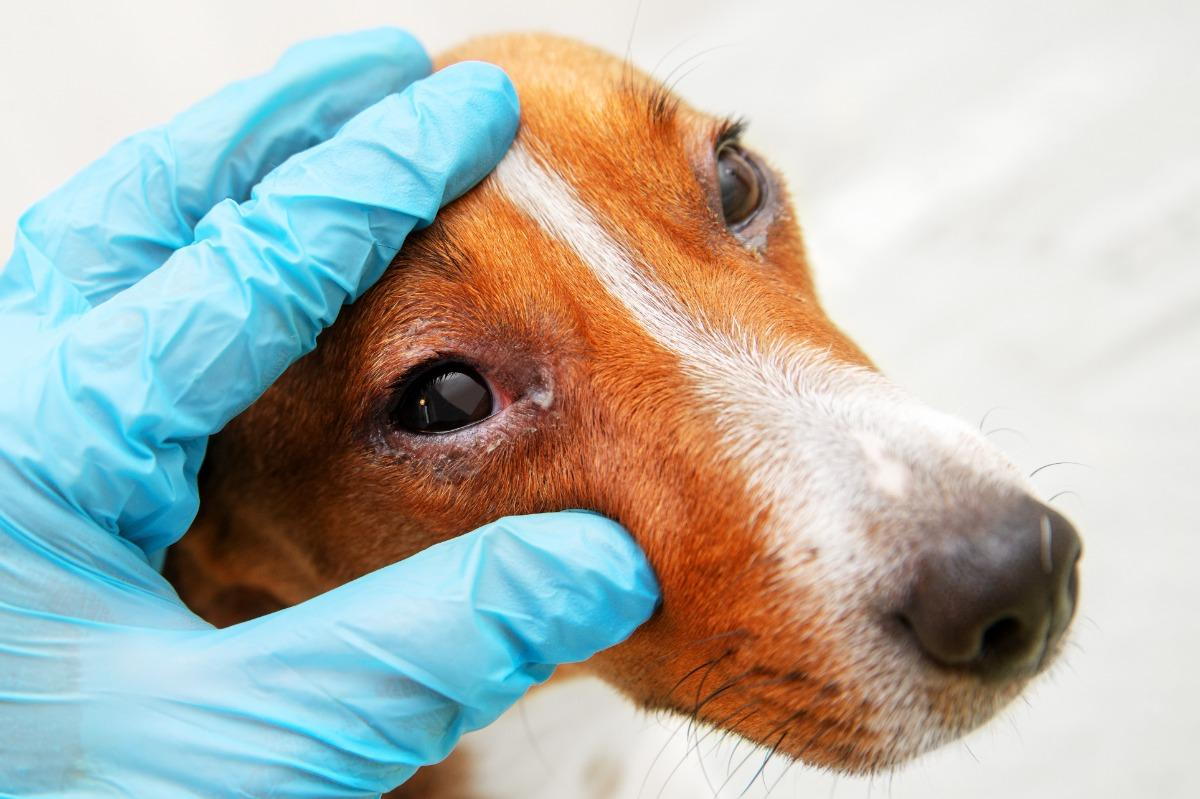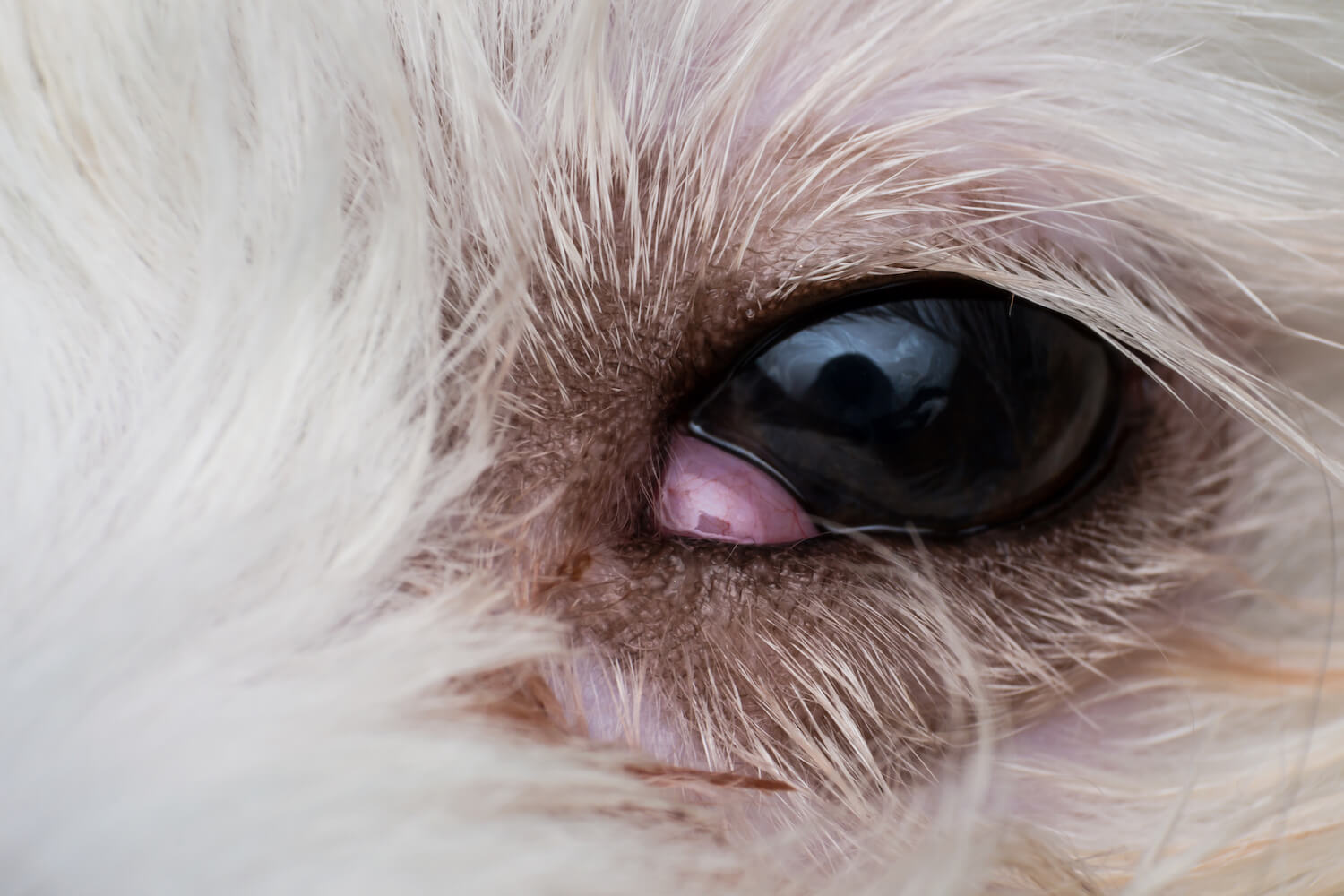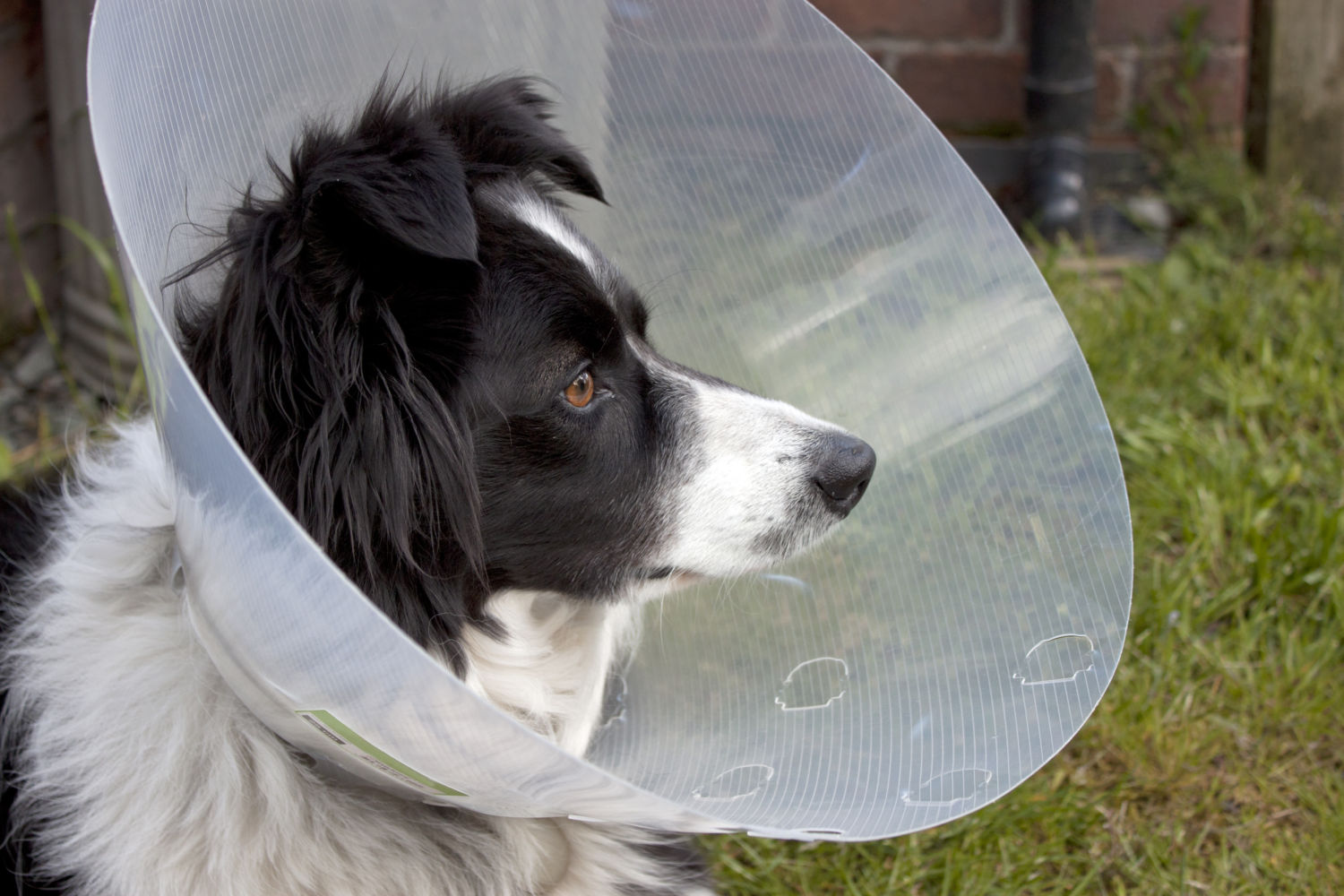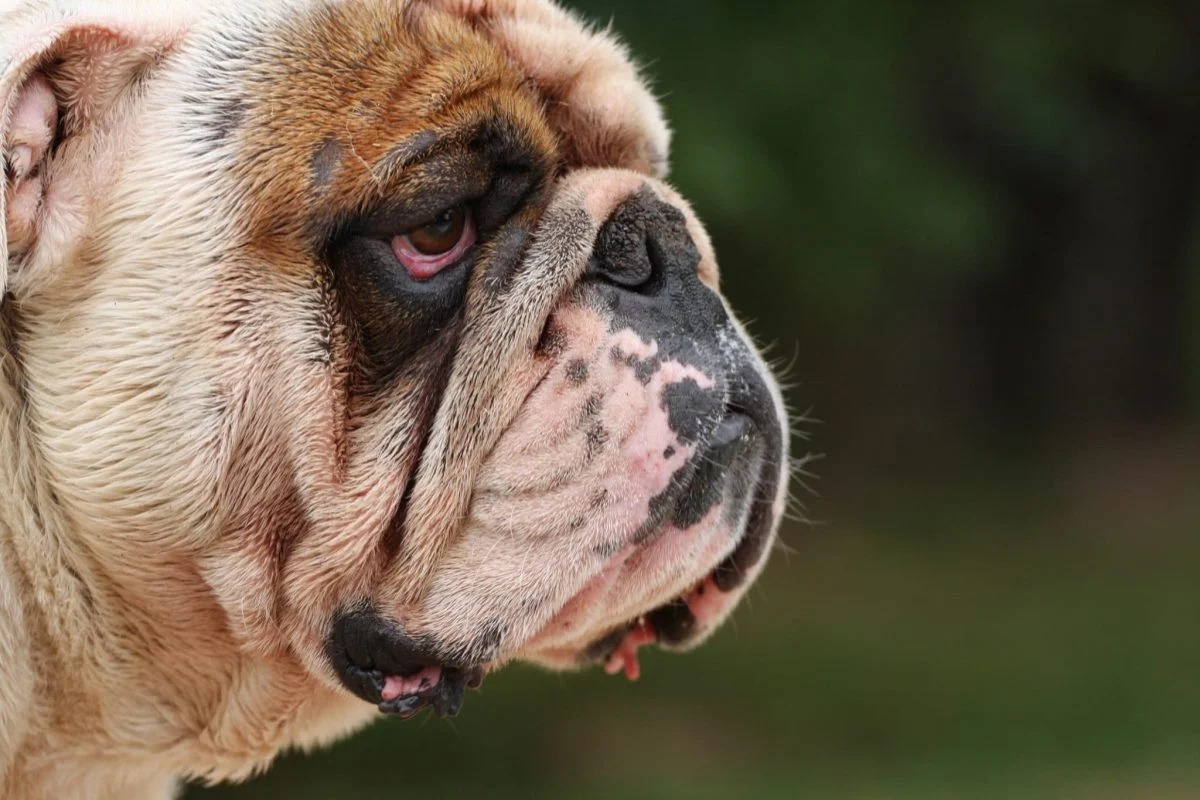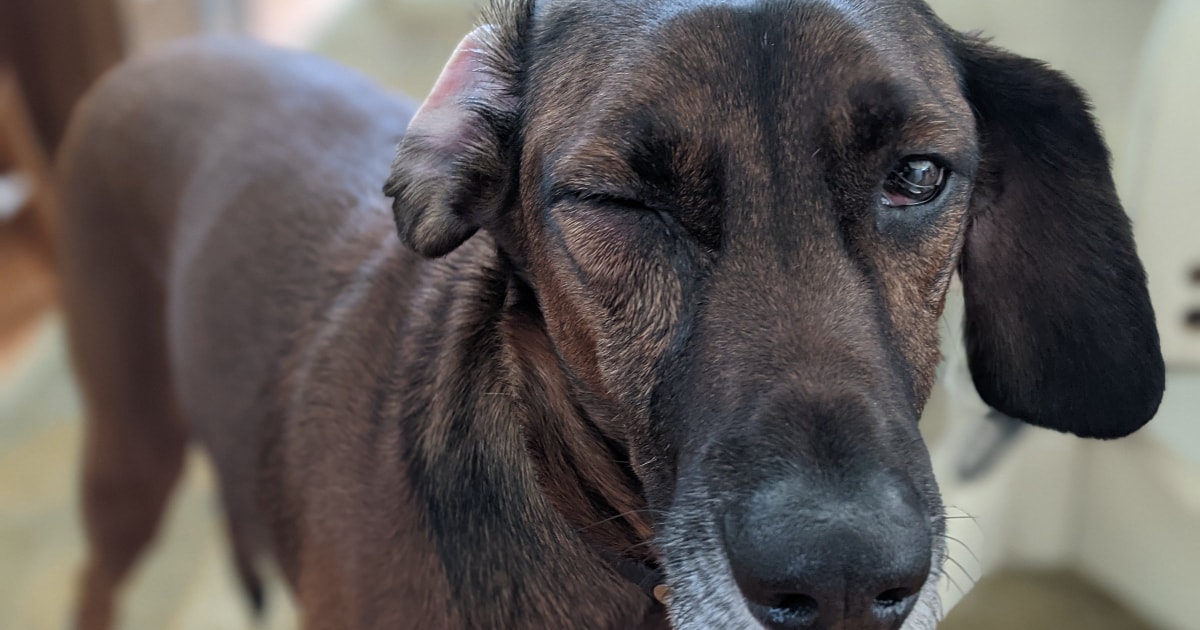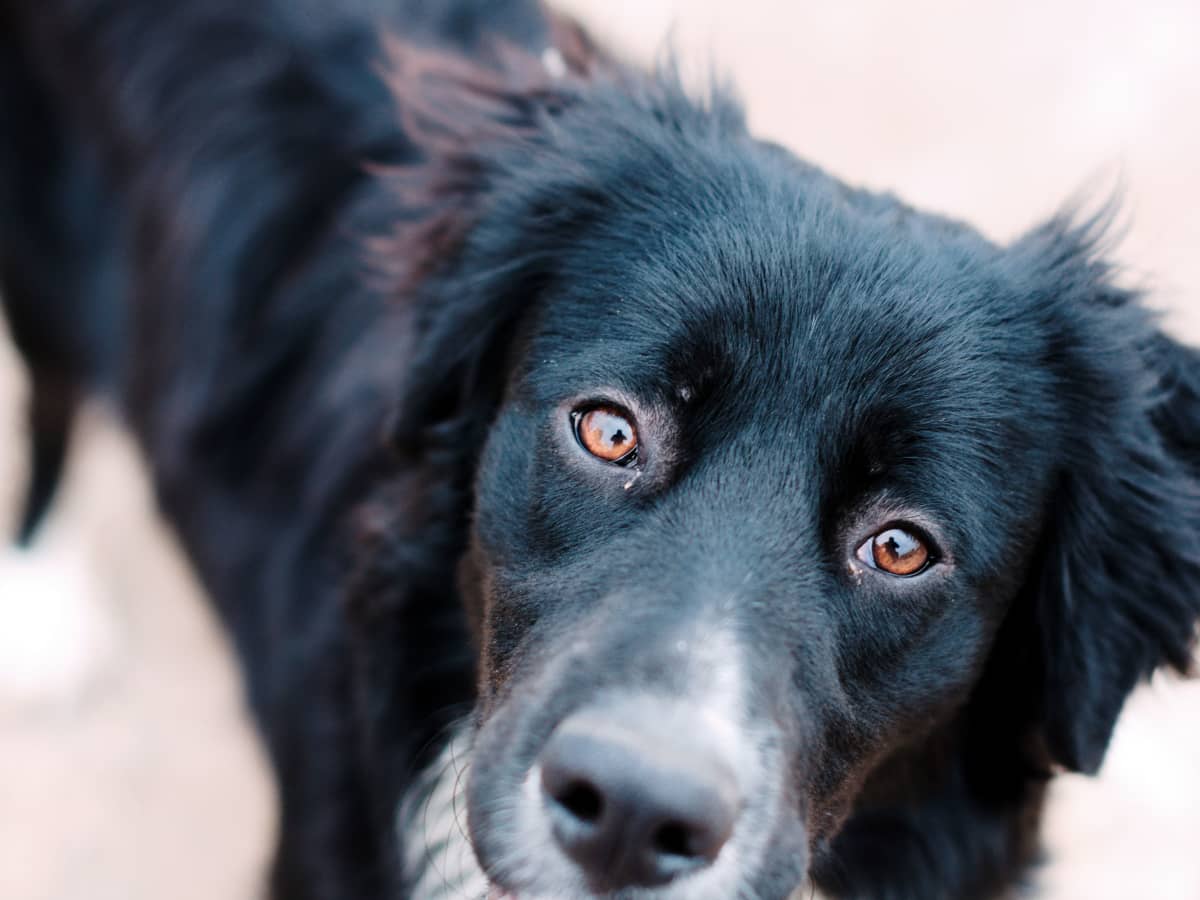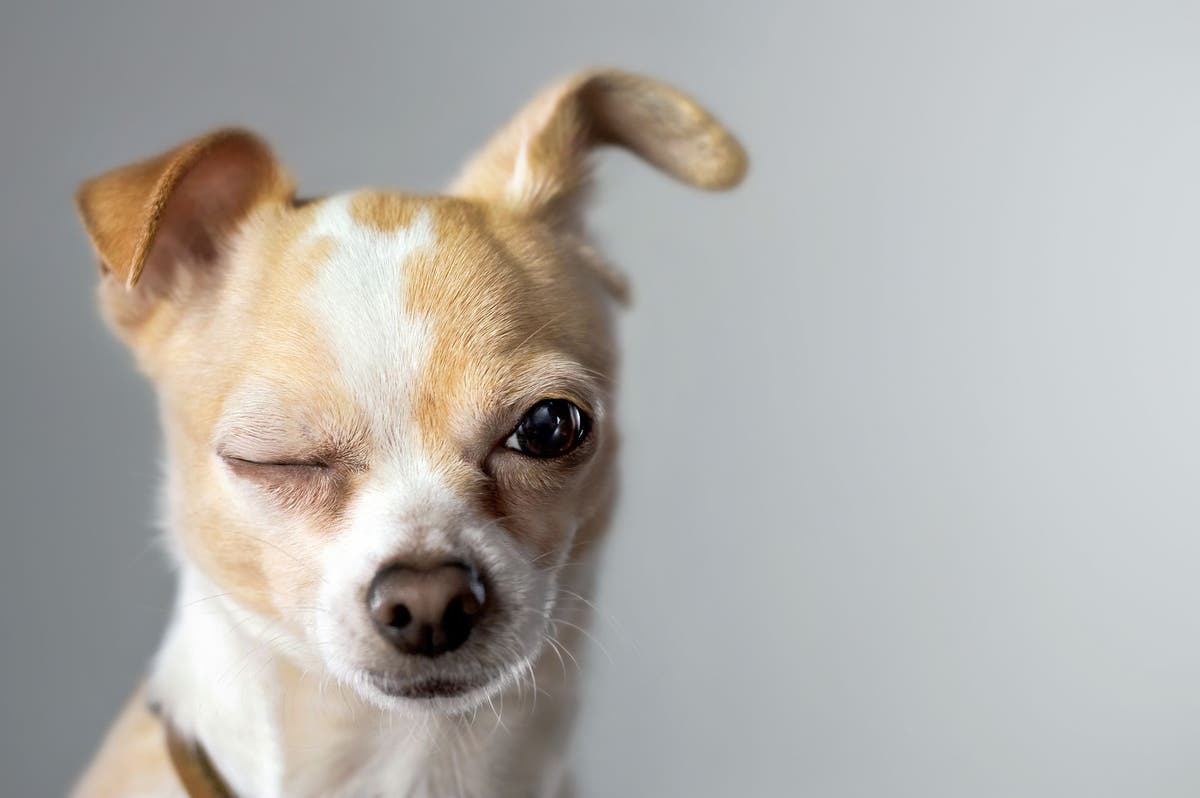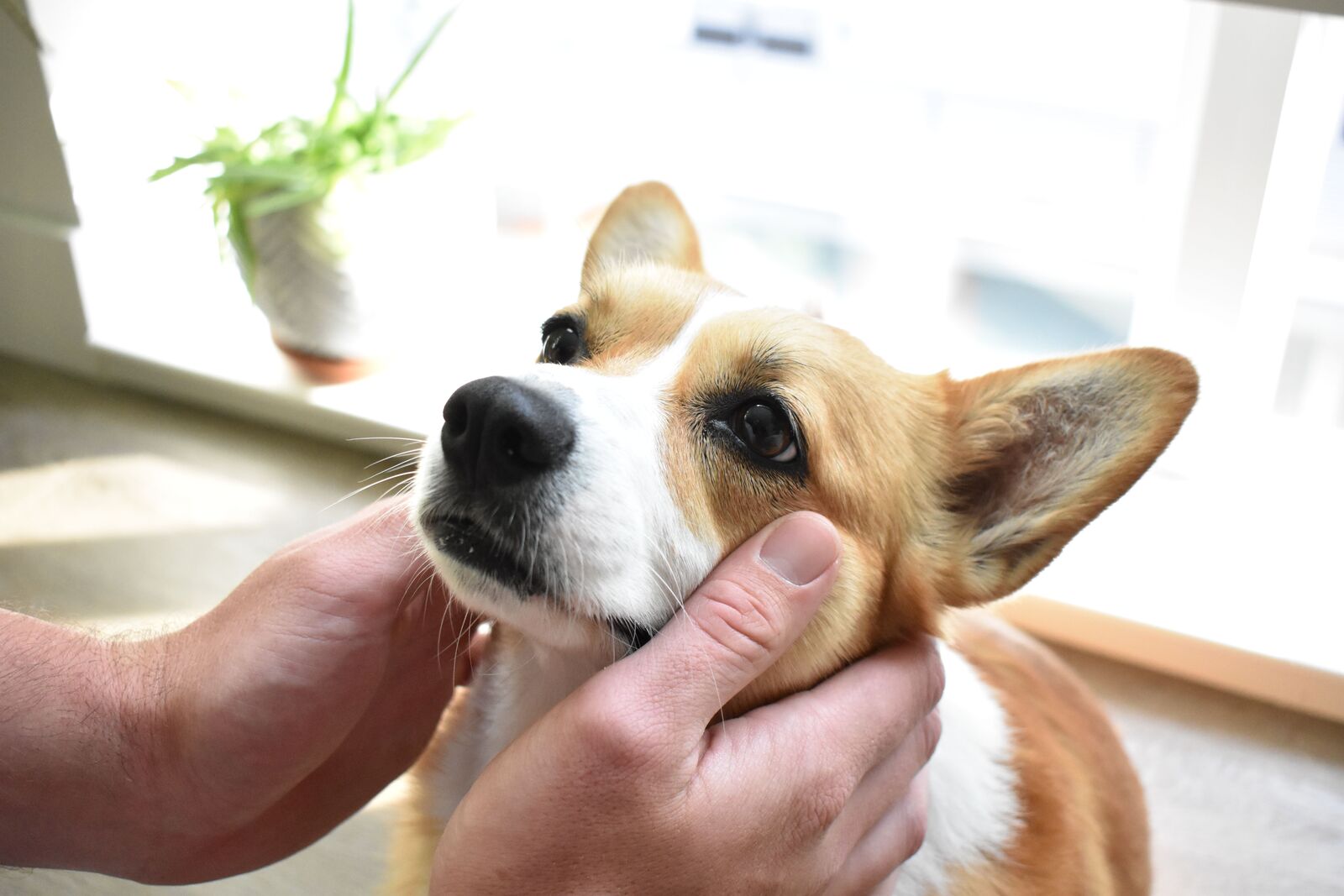Home>Health & Wellness>Common Health Issues>Eye and Ear Health>What To Do For Dog Eye Irritation
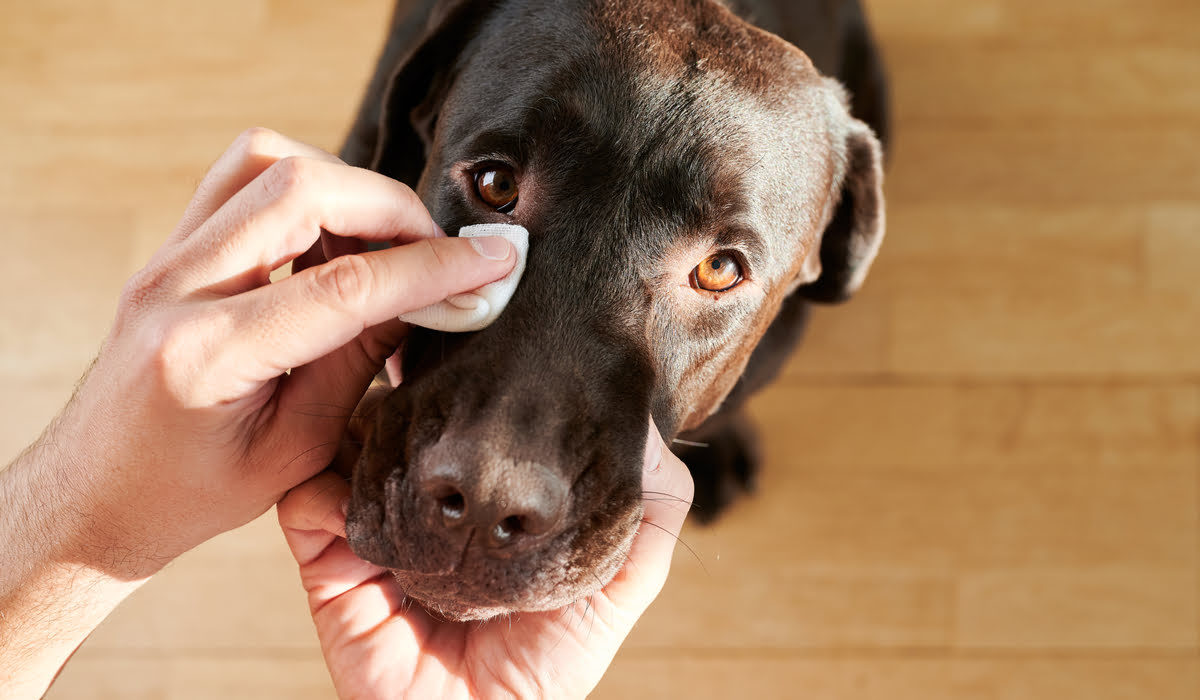

Eye and Ear Health
What To Do For Dog Eye Irritation
Published: February 11, 2024
Learn effective ways to soothe your dog's eye irritation and maintain their eye and ear health. Discover tips and remedies for managing eye discomfort in dogs.
(Many of the links in this article redirect to a specific reviewed product. Your purchase of these products through affiliate links helps to generate commission for Pawsomeoldies.com, at no extra cost. Learn more)
Table of Contents
Introduction
Dog eye irritation is a common concern among pet owners, as our furry companions rely heavily on their vision to navigate the world around them. Just like humans, dogs can experience a range of eye issues, from mild discomfort to more serious conditions that require immediate attention. As responsible pet parents, it's crucial to be aware of the signs of eye irritation in dogs and understand how to address and prevent these problems.
Understanding the potential causes of dog eye irritation and the appropriate steps to take can make a significant difference in your pet's well-being. Whether it's a simple case of dryness or a more complex issue, being proactive and informed can help ensure that your dog's eyes remain healthy and comfortable.
In this comprehensive guide, we will delve into the various aspects of dog eye irritation, including the symptoms to watch out for, common causes, effective home remedies, when to seek veterinary care, and preventive measures. By the end of this article, you will have a deeper understanding of how to recognize, manage, and prevent eye irritation in your beloved canine companion.
Read more: What To Do With An Infection In A Dog’s Eye
Identifying the Symptoms of Dog Eye Irritation
Recognizing the symptoms of dog eye irritation is crucial for early intervention and effective management. Dogs may not be able to verbally communicate their discomfort, so it's essential for pet owners to be vigilant and observant. Here are the key signs to look out for:
-
Excessive Tearing: If you notice an increase in tear production, leading to wet fur around the eyes, it could indicate irritation or an underlying issue.
-
Redness and Swelling: Red or swollen eyes are common indicators of irritation or inflammation. The whites of the eyes may appear pink or red, signaling a potential problem.
-
Squinting or Blinking: Dogs experiencing eye discomfort often squint or blink excessively. This behavior suggests sensitivity to light or pain in the eyes.
-
Discharge: Unusual discharge, such as pus or mucus, can be a sign of infection or irritation. The discharge may appear yellow, green, or cloudy.
-
Rubbing or Pawing at the Eyes: If your dog frequently rubs or paws at their eyes, it could be a response to discomfort or itching.
-
Cloudiness or Change in Eye Color: Any alteration in the clarity or color of the eyes should be promptly addressed, as it may indicate a more serious underlying condition.
-
Visible Third Eyelid: The appearance of the third eyelid, also known as the nictitating membrane, can signal pain or irritation in the eye.
-
Avoidance of Light: Dogs with eye irritation may avoid bright light or prefer dimly lit environments to minimize discomfort.
-
Change in Behavior: Keep an eye out for changes in your dog's behavior, such as increased irritability or reluctance to engage in activities they typically enjoy. These changes could be linked to eye discomfort.
-
Visible Foreign Objects: If you notice any foreign objects, such as debris or particles, in your dog's eyes, it's important to address the issue promptly to prevent further irritation or injury.
By staying attuned to these symptoms, pet owners can promptly address potential eye issues and seek appropriate care to ensure their dog's ocular health and overall well-being.
Causes of Dog Eye Irritation
Dog eye irritation can stem from various factors, ranging from environmental influences to underlying health conditions. Understanding the potential causes of eye irritation in dogs is essential for proactive management and preventive measures. Here are the primary factors that can contribute to dog eye irritation:
-
Allergies: Dogs, like humans, can experience allergic reactions to environmental triggers such as pollen, dust, mold, and certain grooming products. When allergens come into contact with a dog's eyes, it can lead to irritation, redness, and excessive tearing.
-
Foreign Objects: Debris, dust, or small particles can inadvertently enter a dog's eyes during outdoor activities or while exploring unfamiliar environments. These foreign objects can cause immediate irritation and discomfort, leading to symptoms such as blinking, pawing at the eyes, and excessive tearing.
-
Dry Eye (Keratoconjunctivitis Sicca): This condition occurs when a dog's eyes do not produce enough tears to maintain proper lubrication. As a result, the eyes become dry and irritated, potentially leading to inflammation and discomfort. Certain breeds are more prone to developing dry eye, and aging dogs may also experience this condition.
-
Infections: Bacterial, viral, or fungal infections can affect a dog's eyes, leading to irritation, discharge, redness, and swelling. Common eye infections in dogs include conjunctivitis (pink eye) and keratitis. These infections can be caused by various factors, including poor hygiene, trauma, or exposure to infectious agents.
-
Trauma or Injury: Accidental trauma or injury to the eyes can result in irritation, redness, and discomfort for dogs. This can occur due to rough play, encounters with sharp objects, or other physical incidents that impact the eyes.
-
Anatomical Abnormalities: Certain structural abnormalities in a dog's eyelids, eyelashes, or tear ducts can lead to chronic irritation and eye-related issues. Conditions such as entropion (inward rolling of the eyelids) or ectopic cilia (abnormal eyelash growth) can cause ongoing discomfort and irritation.
-
Underlying Health Conditions: Systemic health issues, such as autoimmune diseases, diabetes, or hormonal imbalances, can manifest in ocular symptoms, including eye irritation. It's essential for veterinarians to assess a dog's overall health when addressing chronic or recurrent eye irritation.
-
Genetic Predisposition: Some dog breeds are genetically predisposed to certain eye conditions that can lead to chronic irritation. For example, brachycephalic breeds, such as Bulldogs and Pugs, are prone to eye issues due to their facial structure and prominent eyes.
By understanding these potential causes of dog eye irritation, pet owners can take proactive measures to minimize risks and promptly address any emerging symptoms. Additionally, regular veterinary check-ups and eye examinations can help identify and manage underlying factors contributing to eye irritation in dogs.
Home Remedies for Dog Eye Irritation
When it comes to addressing mild cases of dog eye irritation at home, several simple yet effective remedies can provide relief and support ocular health. It's important to note that while these remedies can help alleviate mild symptoms, any persistent or severe eye issues should be promptly evaluated by a veterinarian to ensure proper diagnosis and treatment. Here are some home remedies for dog eye irritation:
-
Gentle Eye Rinse: Using a veterinarian-recommended sterile saline solution or a specially formulated eye wash for dogs, gently rinse your dog's eyes to remove any debris, dust, or irritants that may be causing discomfort. This can help soothe the eyes and reduce irritation.
-
Warm Compress: Applying a warm, damp cloth to your dog's closed eyes for a few minutes can help alleviate mild irritation and encourage natural lubrication. The warmth can also help loosen any crust or discharge around the eyes.
-
Chamomile Tea Soak: Chamomile tea, known for its soothing properties, can be used to create a gentle eye soak for dogs. After brewing a weak chamomile tea and allowing it to cool, use a clean, soft cloth to apply the tea as a warm compress to your dog's closed eyes. The anti-inflammatory properties of chamomile can help reduce redness and discomfort.
-
Cold Compress for Allergies: In cases where allergies are suspected as the cause of eye irritation, a cold compress can help alleviate swelling and itching. Wrap a few ice cubes in a cloth and gently apply it to your dog's closed eyes for short intervals, being careful to avoid prolonged exposure to cold temperatures.
-
Hydration and Nutrition: Ensuring that your dog stays well-hydrated and receives a balanced diet rich in essential nutrients can support overall eye health. Adequate hydration and proper nutrition can contribute to maintaining the moisture and health of the eyes.
-
Environmental Control: If environmental allergens are triggering your dog's eye irritation, taking measures to minimize exposure can be beneficial. This may include keeping indoor environments clean, using air purifiers, and avoiding outdoor activities during peak pollen or dust seasons.
-
Regular Eye Cleaning: Establishing a routine for gently cleaning around your dog's eyes can help prevent the buildup of discharge and debris, reducing the risk of irritation. Use a damp, soft cloth to gently wipe away any accumulated discharge or tear stains.
It's important to approach home remedies for dog eye irritation with caution and attentiveness. If your dog's symptoms persist, worsen, or are accompanied by additional concerning signs, such as severe discharge, cloudiness, or visible injuries, seeking professional veterinary care is imperative. Additionally, always consult with your veterinarian before administering any home remedies to ensure they are appropriate for your dog's specific condition.
By being proactive in addressing mild eye irritation and seeking professional guidance when needed, pet owners can play a pivotal role in maintaining their dog's ocular health and overall well-being.
When to Seek Veterinary Care
While home remedies and attentive care can address mild cases of dog eye irritation, there are specific circumstances that warrant immediate veterinary attention. Recognizing when to seek professional care for your dog's eye issues is crucial for timely diagnosis, treatment, and the prevention of potential complications. Here are the key indicators that signify the need for veterinary intervention:
Read more: What Do Seeing-Eye Dogs Do
Persistent or Worsening Symptoms:
If your dog's eye irritation persists or worsens despite home care efforts, it's essential to seek veterinary care promptly. Persistent redness, swelling, discharge, or discomfort may indicate an underlying condition that requires professional evaluation and treatment.
Severe Discharge or Crusting:
Excessive or abnormal discharge from the eyes, particularly if it is thick, pus-like, or accompanied by crusting around the eye area, necessitates veterinary attention. These symptoms can signal an infection or more serious ocular issue that requires targeted medical intervention.
Cloudiness or Change in Eye Appearance:
Any noticeable change in the clarity, color, or appearance of your dog's eyes should prompt a visit to the veterinarian. Cloudiness, opacity, or alterations in eye color can indicate conditions such as cataracts, corneal ulcers, or other significant concerns that require expert assessment.
Eye Injury or Trauma:
In cases where your dog experiences a direct eye injury, such as a scratch, foreign object penetration, or blunt trauma to the eye area, immediate veterinary care is crucial. Even seemingly minor injuries can lead to complications and potential long-term damage if not promptly addressed by a professional.
Read more: What To Do After A Dog’s Eye Is Removed
Behavioral Changes:
If you observe significant changes in your dog's behavior, such as increased agitation, reluctance to open the affected eye, or signs of distress when attempting to examine the eye, it's a clear indication to seek veterinary care. Behavioral changes can signal pain, discomfort, or vision impairment that requires professional evaluation.
Underlying Health Conditions:
For dogs with pre-existing health conditions, such as diabetes, autoimmune diseases, or genetic predispositions to eye issues, any signs of eye irritation should prompt a veterinary consultation. Underlying health conditions can exacerbate ocular symptoms and require specialized management.
Recurrent or Chronic Irritation:
Dogs experiencing recurrent or chronic eye irritation should be evaluated by a veterinarian to identify the underlying cause and establish a targeted treatment plan. Persistent eye issues can impact your dog's quality of life and may indicate an ongoing health concern that requires professional oversight.
By recognizing these signs and promptly seeking veterinary care when necessary, pet owners can ensure that their dog receives the appropriate diagnosis, treatment, and support for optimal ocular health. Veterinary professionals can conduct thorough examinations, perform diagnostic tests, and recommend tailored interventions to address your dog's specific eye concerns effectively. Remember that early intervention and expert care are key to safeguarding your dog's vision and overall well-being.
Preventing Dog Eye Irritation
Preventing dog eye irritation is a proactive approach that can significantly contribute to maintaining your canine companion's ocular health and overall well-being. By implementing preventive measures and incorporating good eye care practices into your pet care routine, you can minimize the risk of eye-related issues and promote long-term ocular comfort for your dog.
Read more: What To Do If A Dog Gets Soap In Its Eye
Regular Eye Examinations
Scheduling routine veterinary check-ups that include comprehensive eye examinations is essential for early detection of potential eye issues. Veterinarians can assess your dog's ocular health, identify any emerging concerns, and provide guidance on preventive care strategies tailored to your pet's specific needs.
Environmental Awareness
Being mindful of your dog's environment and potential eye hazards can help prevent eye irritation. Avoid exposing your dog to smoke, strong chemicals, and airborne irritants that can compromise eye health. Additionally, protecting your dog's eyes during activities such as swimming, hiking, or playing in dusty areas can minimize the risk of foreign objects and irritants entering the eyes.
Grooming and Hygiene Practices
Maintaining good grooming and hygiene practices can contribute to preventing eye irritation in dogs. Regularly trimming your dog's facial fur, particularly around the eyes, can reduce the risk of hair irritating the eyes or obstructing vision. Additionally, keeping your dog's face clean and free from accumulated discharge or tear stains can help prevent irritation and potential infections.
Balanced Nutrition and Hydration
Providing your dog with a balanced diet rich in essential nutrients, including those beneficial for eye health, can support overall ocular well-being. Adequate hydration is also crucial for maintaining the moisture and lubrication of the eyes. Consult with your veterinarian to ensure that your dog's diet meets their specific nutritional requirements, including those essential for ocular health.
Read more: What To Do For An Ulcer In A Dog’s Eye
Eye Protection During Outdoor Activities
When engaging in outdoor activities with your dog, particularly in environments with potential eye hazards, consider using protective eyewear designed for dogs. These specialized goggles can shield your dog's eyes from dust, debris, UV rays, and other environmental factors that may contribute to eye irritation. Additionally, ensuring that your dog's eyes are shielded from direct sunlight can help prevent UV-related ocular issues.
Regular Exercise and Mental Stimulation
Regular exercise and mental stimulation are vital for your dog's overall health, including their ocular well-being. Engaging in physical activities and providing mental enrichment can help reduce stress and promote overall vitality, which can indirectly contribute to maintaining healthy eyes.
By incorporating these preventive measures into your dog's care regimen, you can take proactive steps to minimize the risk of eye irritation and support your pet's ocular health. Additionally, staying attuned to any changes in your dog's eye health and promptly addressing emerging concerns with professional veterinary guidance can further contribute to safeguarding your dog's vision and comfort.
Conclusion
In conclusion, being attuned to the signs of dog eye irritation, understanding its potential causes, and knowing how to address and prevent it are essential aspects of responsible pet ownership. By recognizing symptoms such as excessive tearing, redness, discharge, and behavioral changes, pet owners can promptly intervene and seek appropriate care for their canine companions. Understanding the diverse factors that can contribute to eye irritation, including allergies, infections, and genetic predispositions, empowers pet owners to take proactive measures to minimize risks and promote ocular health.
Home remedies, such as gentle eye rinses, warm compresses, and environmental controls, can provide relief for mild cases of eye irritation, while also ensuring that professional veterinary care is sought when necessary. The importance of seeking veterinary attention for persistent symptoms, severe discharge, or eye injuries cannot be overstated, as timely intervention is crucial for accurate diagnosis and targeted treatment.
Preventive measures, including regular eye examinations, environmental awareness, grooming practices, balanced nutrition, and eye protection during outdoor activities, play a pivotal role in minimizing the risk of dog eye irritation. By incorporating these preventive strategies into their pet care routines, pet owners can actively contribute to their dog's ocular well-being and overall quality of life.
Ultimately, maintaining open communication with veterinarians, staying informed about potential eye hazards, and being proactive in addressing emerging symptoms are fundamental in safeguarding a dog's vision and ocular comfort. By prioritizing preventive care, prompt intervention, and ongoing support, pet owners can ensure that their beloved canine companions enjoy optimal eye health and a vibrant, fulfilling life.
